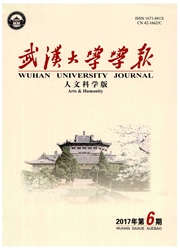

 中文摘要:
中文摘要:
维特根斯坦的伦理学与他对语言的考察密不可分。维特根斯坦前后期语言哲学的重要转变也反映在其前后期伦理学思想的差异上。前期维特根斯坦通过对语言的逻辑分析,得出了伦理学不可说的神秘思想;后期通过语法研究,维特根斯坦完成了对伦理学命题的澄清。但是,他的伦理学存在着内在困境:前期伦理学受到神秘主义困扰,致使其无法处理道德规范性问题;后期伦理学走向了温和相对主义,尽管他能够处理道德判断和道德实践问题,但是相对主义的困扰始终存在。
 英文摘要:
英文摘要:
Wittgenstein's ethics has close relation with his investigation of language. The change of his philosophy of language in early and later periods reflects to his ethical thought. The early Wittgenstein maintains that the ethics is inexpressible through the analysis of the logic of language; the later Wittgenstein completes the clarification of ethical propositions by the investigation of grammar. However, there is inner dilemma in his ethical though:the early ethics suffers the mysticism which cannot handle problems of moral rules; the later ethics could deal with moral judgment and moral practice, but il is encompassed with relativism.
 同期刊论文项目
同期刊论文项目
 同项目期刊论文
同项目期刊论文
 期刊信息
期刊信息
